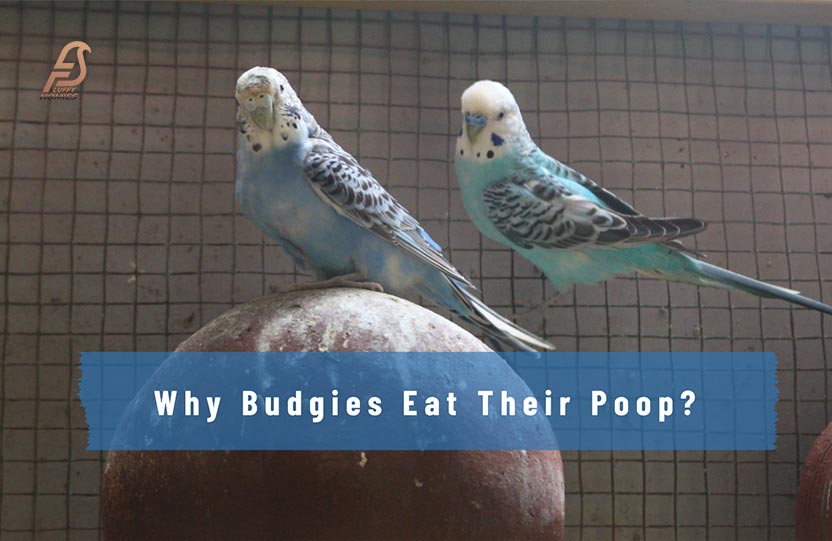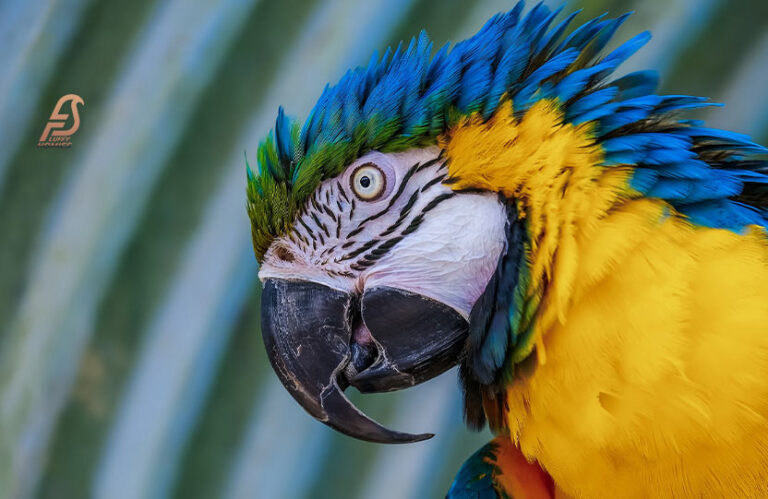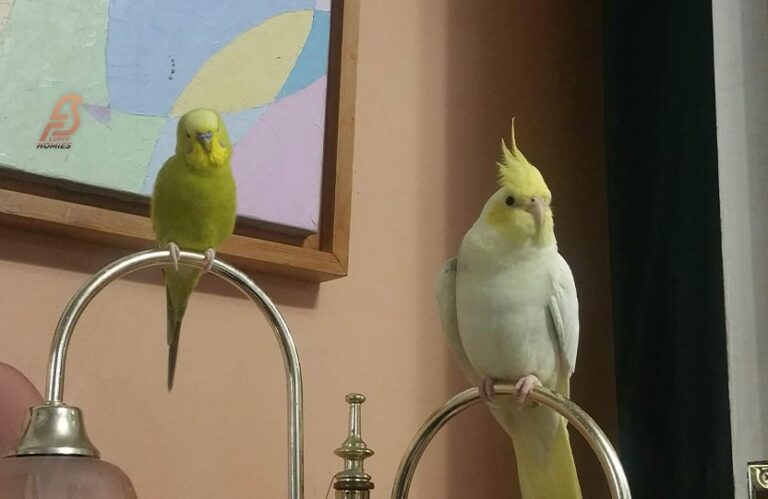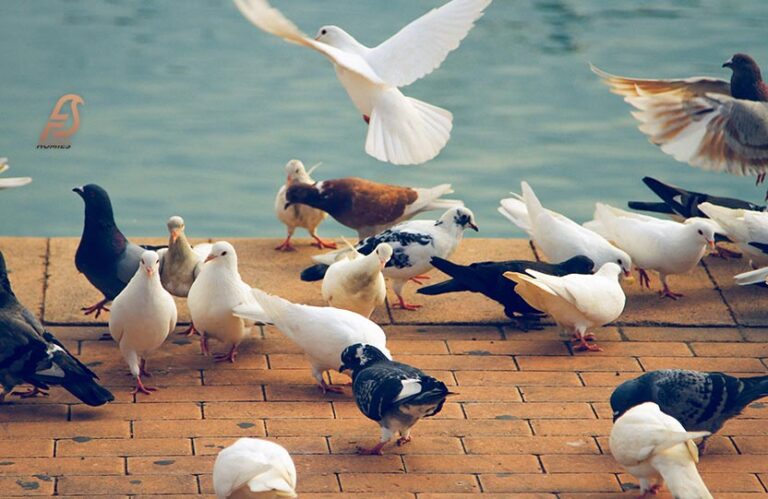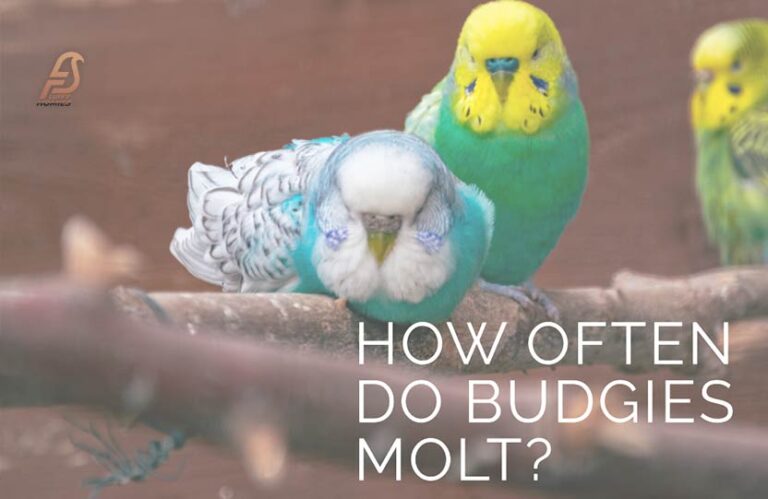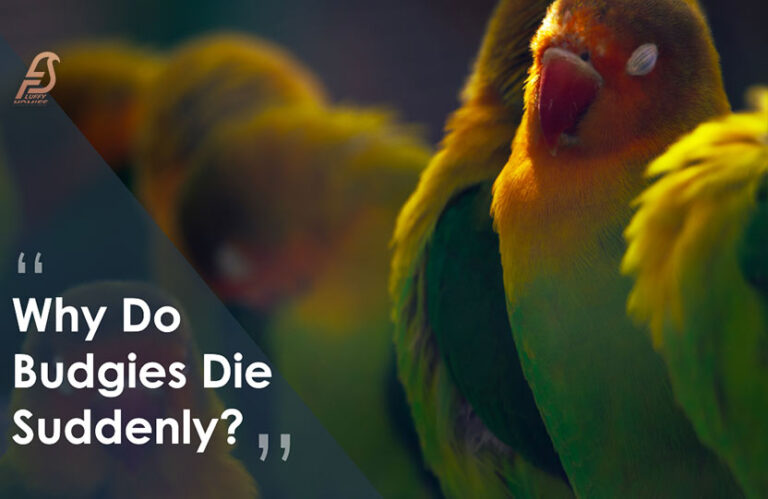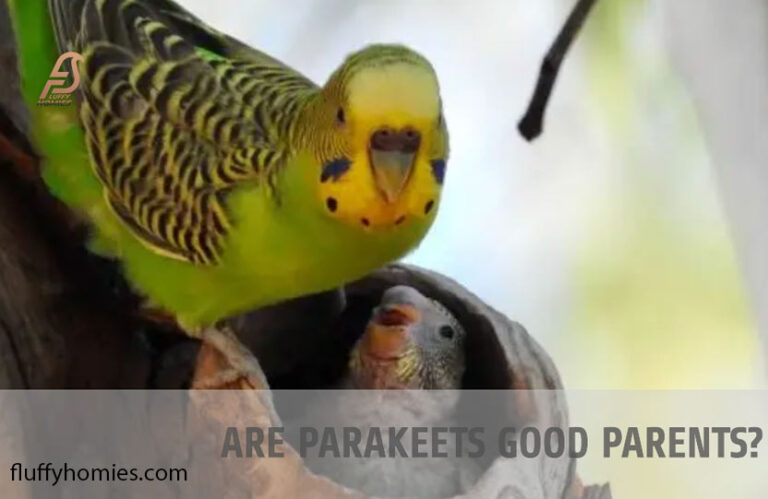Why Budgies Eat Their Poop? (Budgies Shocking Secrets 2023)
Budges are small and colorful avian companions that exhibit numerous intriguing behaviors, some of which may surprise their human caretakers.
One such behavior is the tendency of budgies to eat their poop, commonly referred to as coprophagy.
While this behavior may seem unusual or even repulsive to us, it serves important physiological functions for these charming birds.
In this article, we delve into the reasons why budgies engage in this behavior and explore its significance in their overall health and well-being.
What is Coprophagy?
Coprophagy is the term used to describe the consumption of feces by an animal. While it may seem unpleasant to us, coprophagy is a relatively common behavior in the animal kingdom and serves various purposes.
Budgies engage in coprophagy by eating their poop, which might puzzle many budgie owners.
Is It OK for Budgies to Eat Their Poop?
One of the first questions that may arise when observing budgies eating their poop is whether this behavior is considered ok. Rest assured, coprophagy is indeed a normal behavior in budgies and many other animal species.
Coprophagy is a natural behavior observed in various animal groups, including birds. It serves specific purposes related to their nutrition and overall well-being that also makes budgies destructive.
Budgies, being part of the avian world, exhibit this behavior as well. While it may seem peculiar to us, it is an instinctual behavior deeply ingrained in their evolutionary history.
In the wild, budgies often inhabit arid regions where food sources can be scarce and unpredictable. This necessitates efficient utilization of available resources to maximize their chances of survival.
Coprophagy allows budgies to extract additional nutrition from their droppings and ensure they obtain essential vitamins, minerals, and other valuable substances that might have been missed during the initial digestion process.
Why Budgies Eat Their Poop?
Budgies engage in the behavior of eating their droppings, or coprophagy, for several important reasons. Budgies also poop everywhere. Let’s explore these reasons in more detail:
Nutrient Recycling
Budgies possess a remarkable ability to extract the maximum nutritional value from their food.
However, certain essential nutrients, such as vitamin B and vitamin K, are produced by bacteria residing in the hindgut. These nutrients may not be fully absorbed during the initial digestion process.
By eating their droppings, budgies give themselves a second chance to absorb these valuable nutrients, ensuring they receive an adequate supply for their metabolic needs.
Coprophagy serves as a form of nutrient recycling, allowing budgies to optimize their nutrient intake and promote overall health.
Gut Microbiome Maintenance
The gastrointestinal tract of budgies, like many other animals, harbors a complex community of beneficial microorganisms known as the gut microbiome.
These microorganisms play a crucial role in digestion, nutrient absorption, and overall gut health. When budgies engage in coprophagy, they reintroduce these beneficial gut bacteria into their digestive system.
This behavior helps maintain a healthy balance of gut flora, which is essential for optimal digestion and supports their immune system.
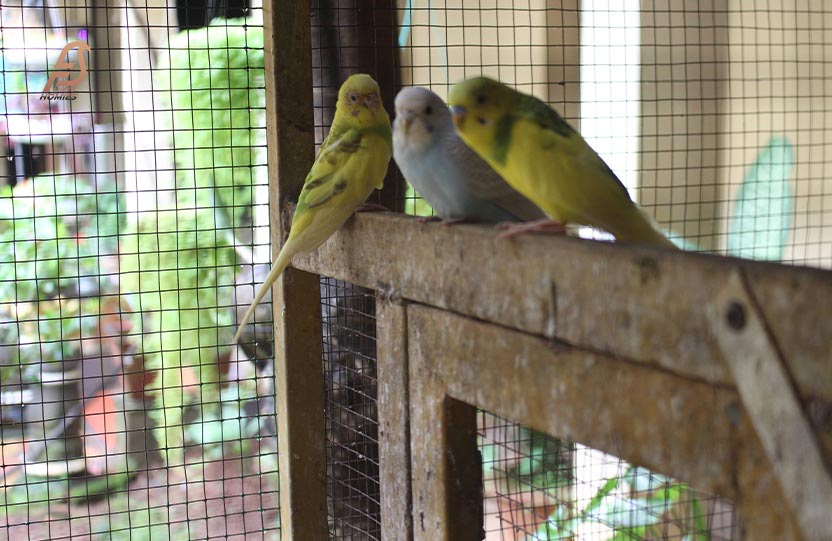
Instinctual Behavior
Coprophagy is an instinctual behavior observed in many animal species, including birds.
In the wild, budgies may ingest their droppings as a means of recycling vital nutrients that were not completely absorbed during the initial digestion process.
This behavior has been shaped by evolution and has proven to be advantageous for their survival and reproductive success.
Behavioral Factors
In addition to the physiological reasons, some behavioral factors may contribute to coprophagy in budgies. In captivity, budgies are often provided with a diet that differs from their natural food sources.
This variation in diet composition can sometimes lead to the ingestion of droppings out of curiosity or as a result of the birds’ innate foraging instincts. It’s important to provide a varied and balanced diet to minimize excessive coprophagy.
Is Budgie Poop Harmful?
In their natural state, budgie droppings do not possess any harmful elements that can adversely affect a budgie’s health. It is unlikely for wild budgies to fall ill after consuming their droppings.
However, when budgie droppings are left exposed, they can become contaminated with bacteria, potentially leading to illness in budgies.
The cleanliness of the cage plays a crucial role in minimizing the risk of diseases and maintaining good health.
Even if your budgie consumes fresh droppings that are free from bacteria, it may indicate an underlying issue with its mental or physical well-being. It could be a sign of restlessness or a deficiency in essential dietary nutrients.
What Can Happen if a Budgie Eats Its Poop?
There are different colors of budgies that harmful for them. While occasional coprophagy is generally not a cause for immediate concern, excessive or compulsive consumption of droppings may have potential consequences for your budgie’s health.
Let’s explore some of the potential outcomes:
Nutritional Imbalances
Excessive coprophagy can lead to imbalances in nutrient intake. If your budgie is consuming an excessive amount of droppings, it may not be obtaining a diverse and balanced diet from its primary food sources.
This can result in nutritional deficiencies over time, potentially affecting its overall health and well-being.
Gastrointestinal Issues
Consuming excessive amounts of droppings can disrupt the delicate balance of the budgie’s gastrointestinal tract.
It may lead to digestive disturbances, such as changes in stool consistency, increased water intake, or gastrointestinal discomfort.
Prolonged or severe gastrointestinal issues can impact your budgie’s overall health and require veterinary attention.
Underlying Health Problems
Compulsive or excessive coprophagy may indicate an underlying health issue or nutritional deficiency in your budgie. It could be a symptom of an illness, digestive disorder, or metabolic imbalance.
If you observe significant changes in your budgie’s behavior, weight loss, decreased appetite, or other concerning signs along with coprophagy, it is important to consult with an avian veterinarian to evaluate its health.
Risks of Bacterial Contamination
While budgie droppings themselves are generally not harmful, excessive coprophagy can increase the risk of bacterial contamination.
If the droppings have been in contact with pathogens or if the budgie’s digestive system is compromised, there is a possibility of bacterial overgrowth or infections.
Regular veterinary check-ups and maintaining a clean living environment can help minimize these risks.
How to Stop Budgies from Eating Poop?
While it may not be possible to completely prevent coprophagy in budgies due to its instinctual nature, there are strategies you can employ to minimize excessive consumption of droppings.
Here are some tips to help you manage and reduce coprophagy in your budgies:
Provide a Balanced Diet
Ensure that your budgies are receiving a nutritious and well-balanced diet. Consult with an avian veterinarian or avian nutritionist to determine the appropriate food options for your budgies.
A balanced diet will help ensure that they are obtaining all the necessary nutrients from their food, reducing the need for excessive coprophagy.
Enhance Digestive Health
Optimal digestive health plays a crucial role in minimizing coprophagy. Provide your budgies with fresh fruits, vegetables, and leafy greens as part of their diet.
These natural fiber sources help support proper digestion and can reduce the urge for coprophagy.
Maintain a Clean Environment
Keep your budgie’s living area clean and hygienic. Regularly clean their cage, perches, and food/water dishes to prevent the accumulation of droppings.
A clean environment can help discourage coprophagy by reducing the availability of droppings for consumption.
Stimulate Natural Foraging Behavior
Budgies are naturally curious and enjoy foraging for food. Provide them with stimulating toys and activities that encourage natural foraging behavior.
This can divert their attention away from coprophagy and engage them in more appropriate behaviors.
Regular Veterinary Check-ups
Schedule regular check-ups with an avian veterinarian to monitor your budgie’s overall health. They can assess any underlying health issues that may contribute to coprophagy and provide appropriate guidance.
Observe and Monitor Behavior
Keep a close eye on your budgie’s behavior and droppings. Any sudden or significant increase in coprophagy should be noted and discussed with a veterinarian.
Excessive or compulsive coprophagy may be a sign of underlying health problems or nutritional deficiencies that require professional attention.
Conclusion — Why Budgies Eat Their Poop?
Budgies eating their poop might seem strange, but it is a natural behavior rooted in their evolutionary instincts and nutritional needs.
Understanding why budgies eat their poop helps us appreciate the complexity of their biology and instincts. It highlights their remarkable adaptations to efficiently utilize available resources and maintain their well-being.
While occasional coprophagy is normal, excessive consumption may indicate underlying health issues.
By providing a balanced diet and optimal living conditions, you can minimize coprophagy and ensure your budgie’s overall well-being.
FAQs — Why Budgies Eat Their Poop?
What are the signs of budgies mating?
Signs of budgies mating include increased physical closeness, mutual preening, regurgitation of food by the male, courtship dances, and the female assuming a receptive position with raised tail feathers.
Why do budgies eat their eggs?
Budgies may eat their eggs if they feel threatened or stressed, to regain nutrients lost during egg-laying, due to inexperience as first-time parents, or as an instinct to remove non-viable or damaged eggs from the nest.
Why are my birds eating their poop?
Birds, including budgies, may engage in coprophagy (eating their feces) as a way to obtain undigested nutrients or beneficial gut bacteria. It is a natural behavior that helps them maximize their nutritional intake.
